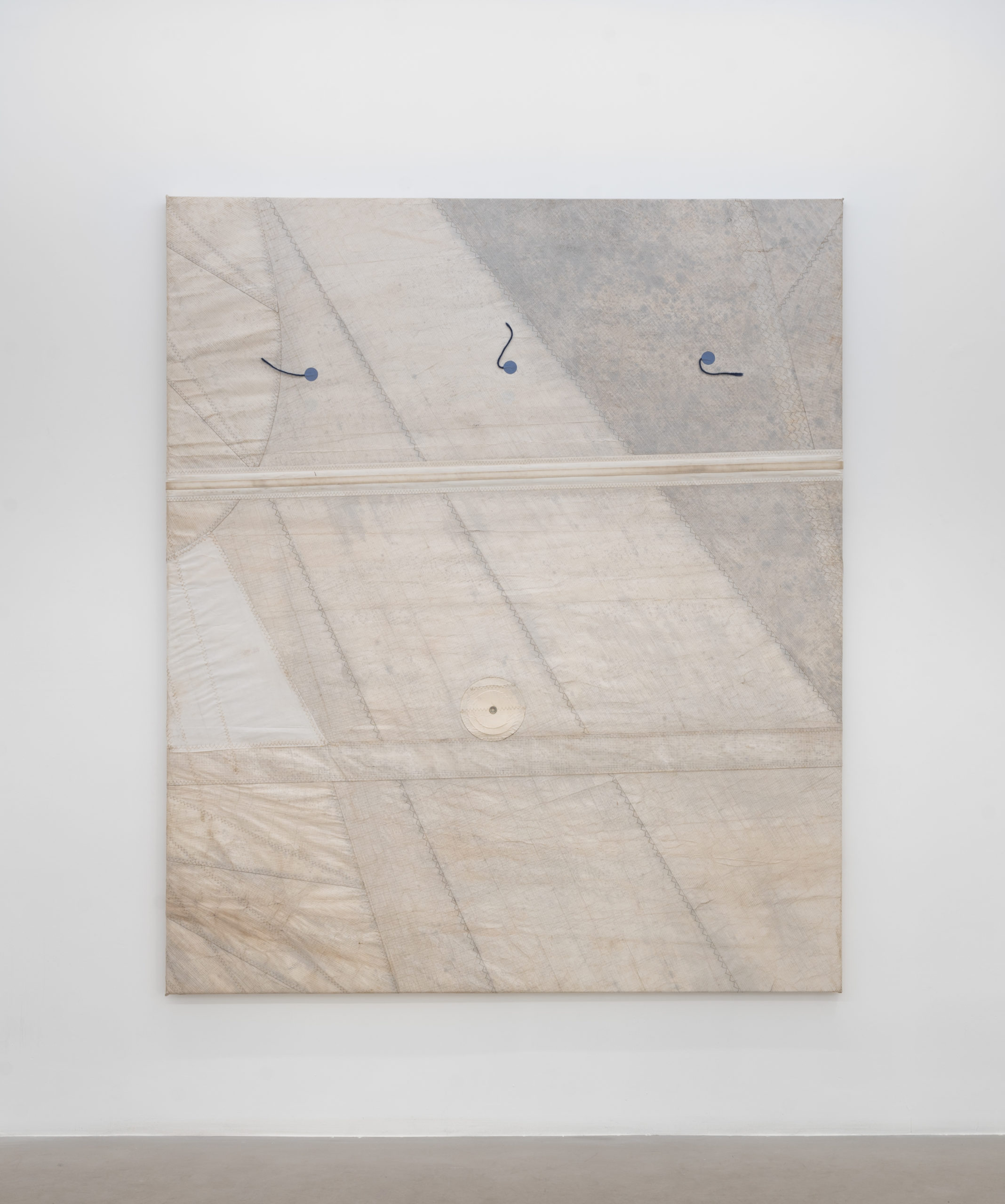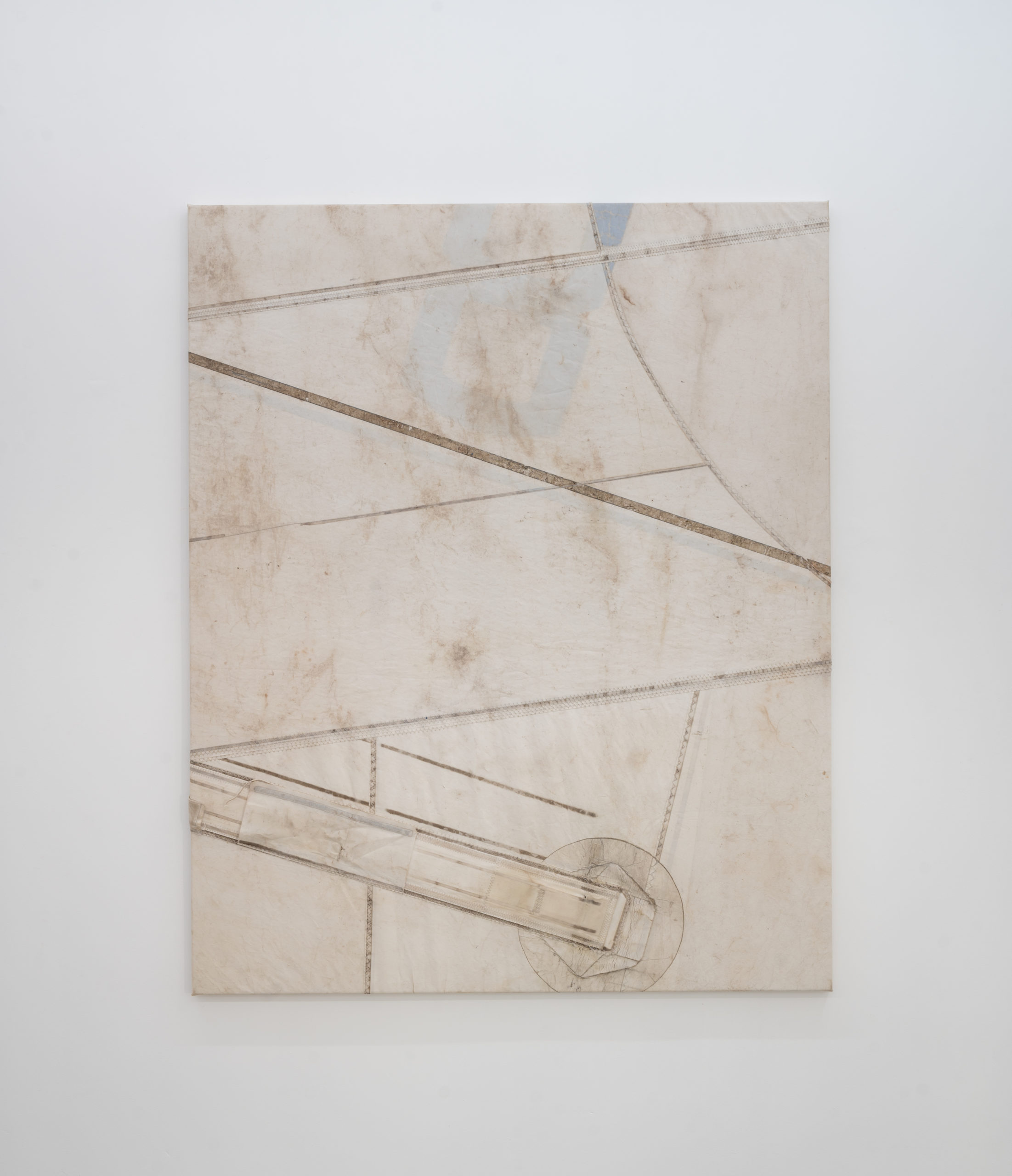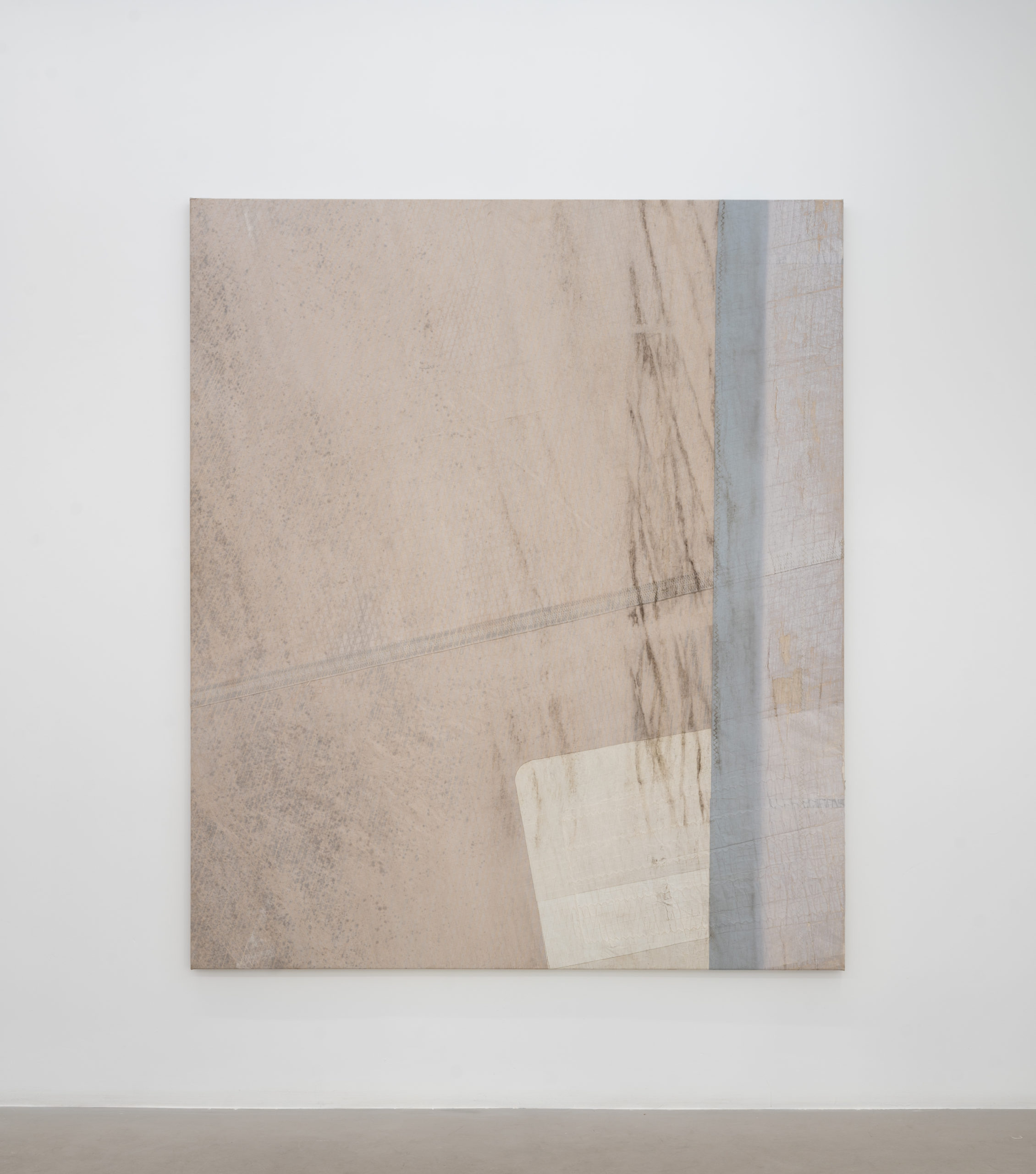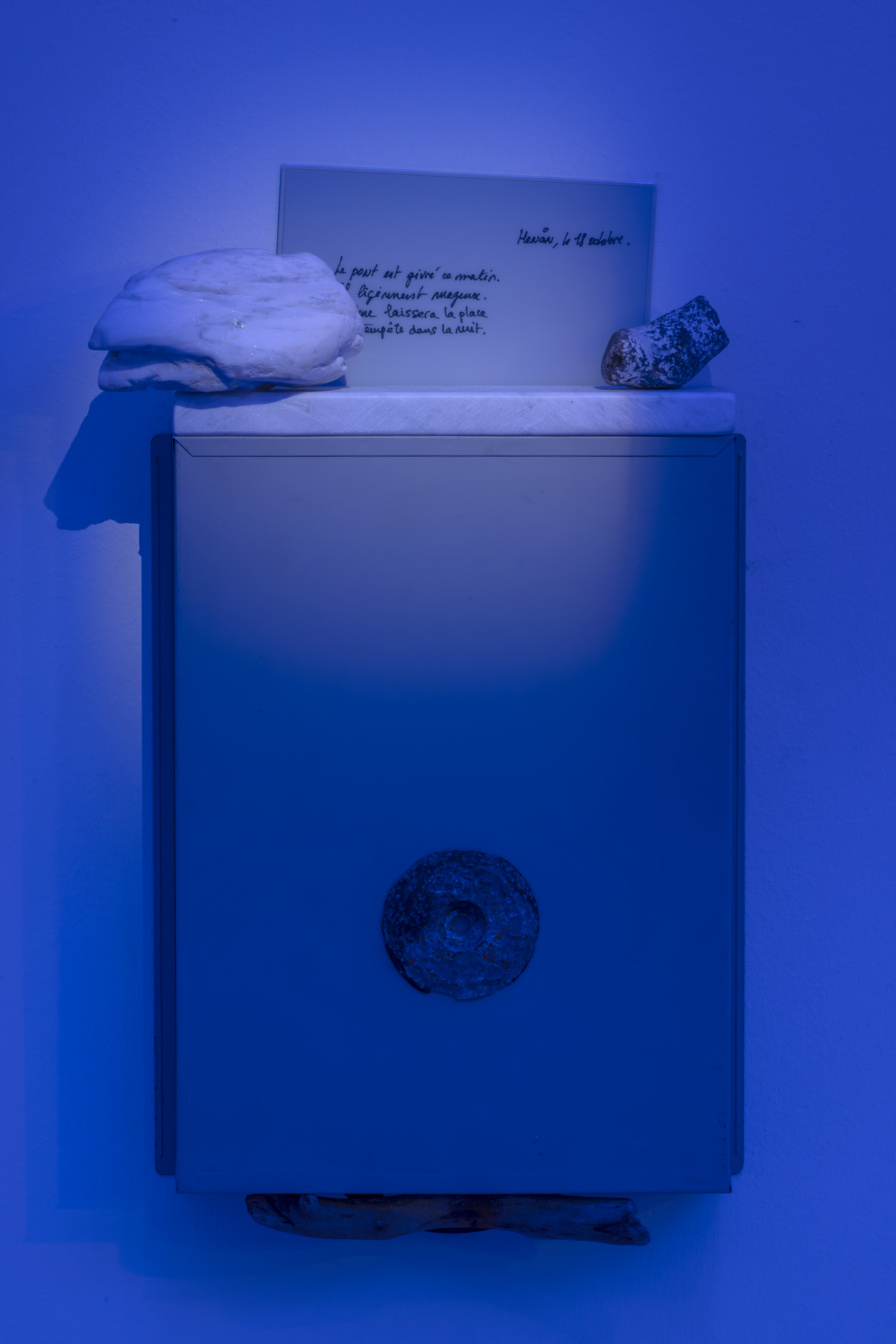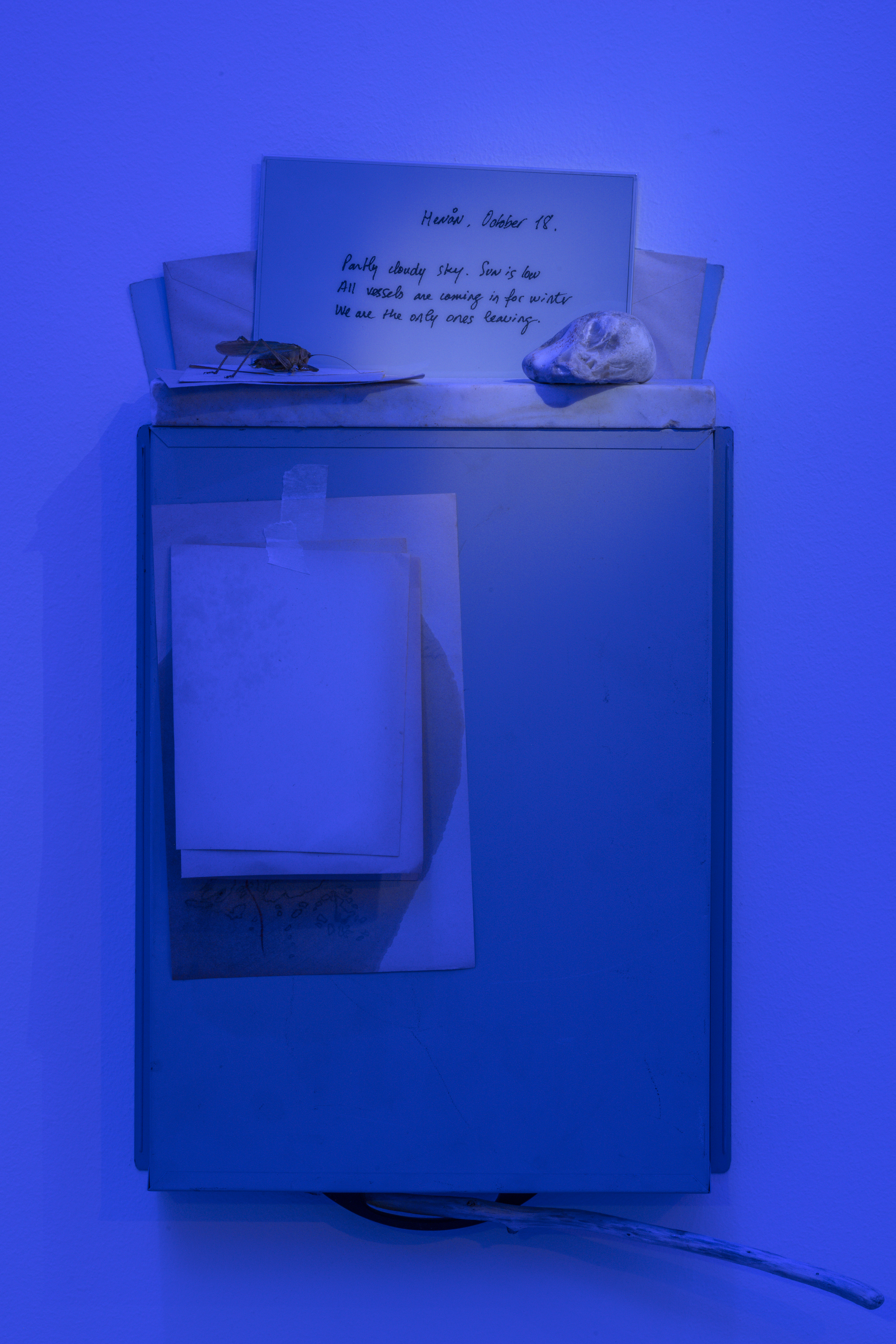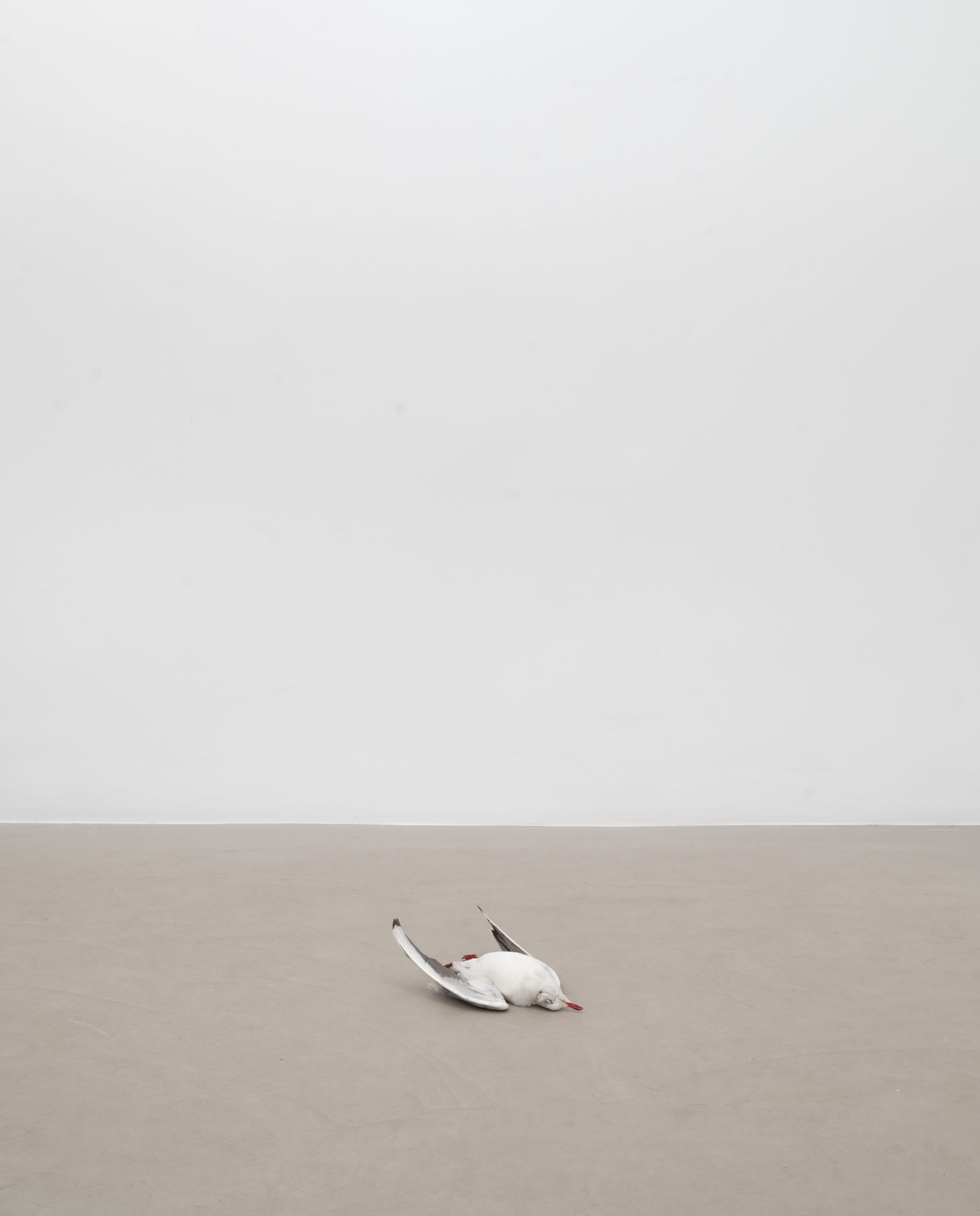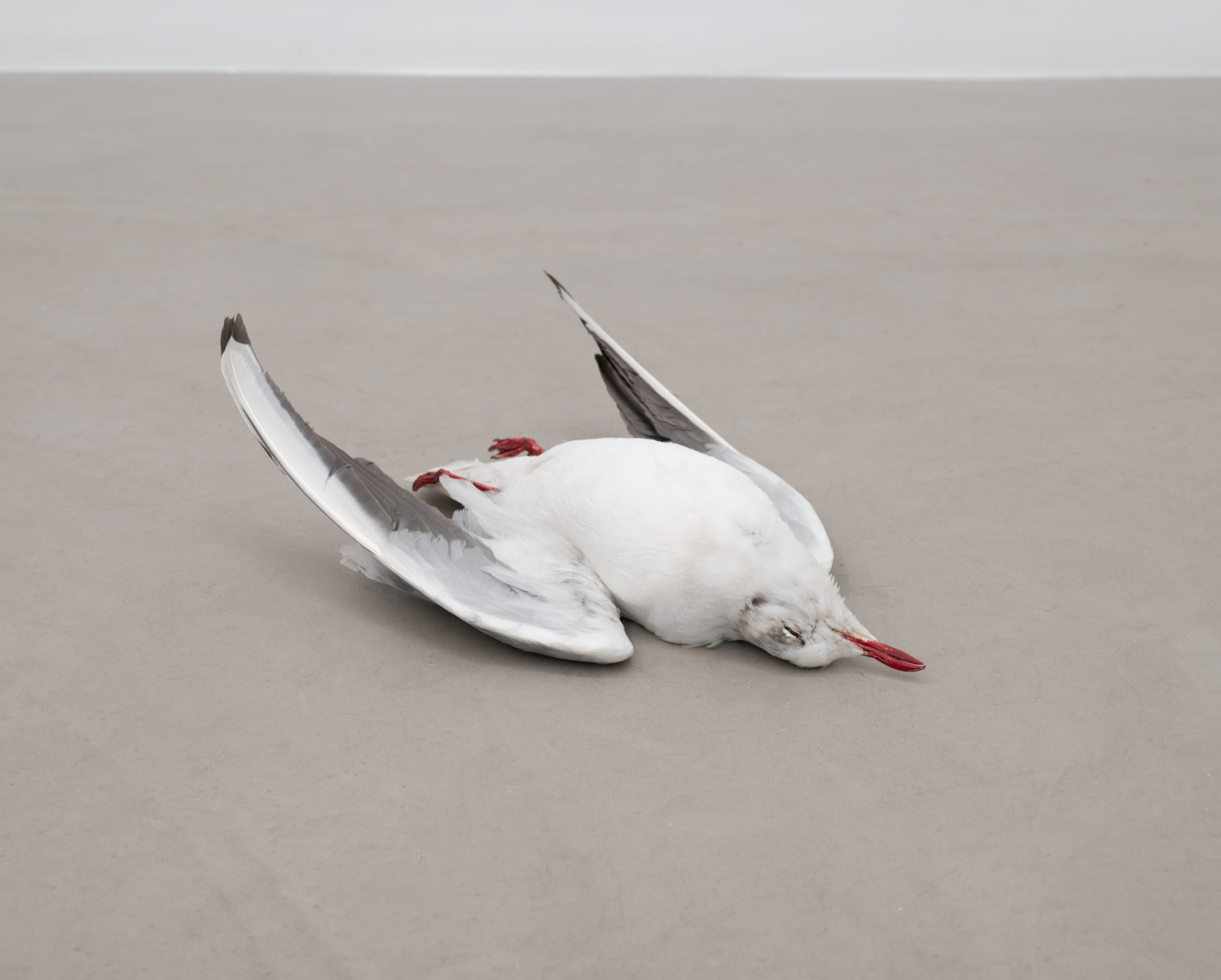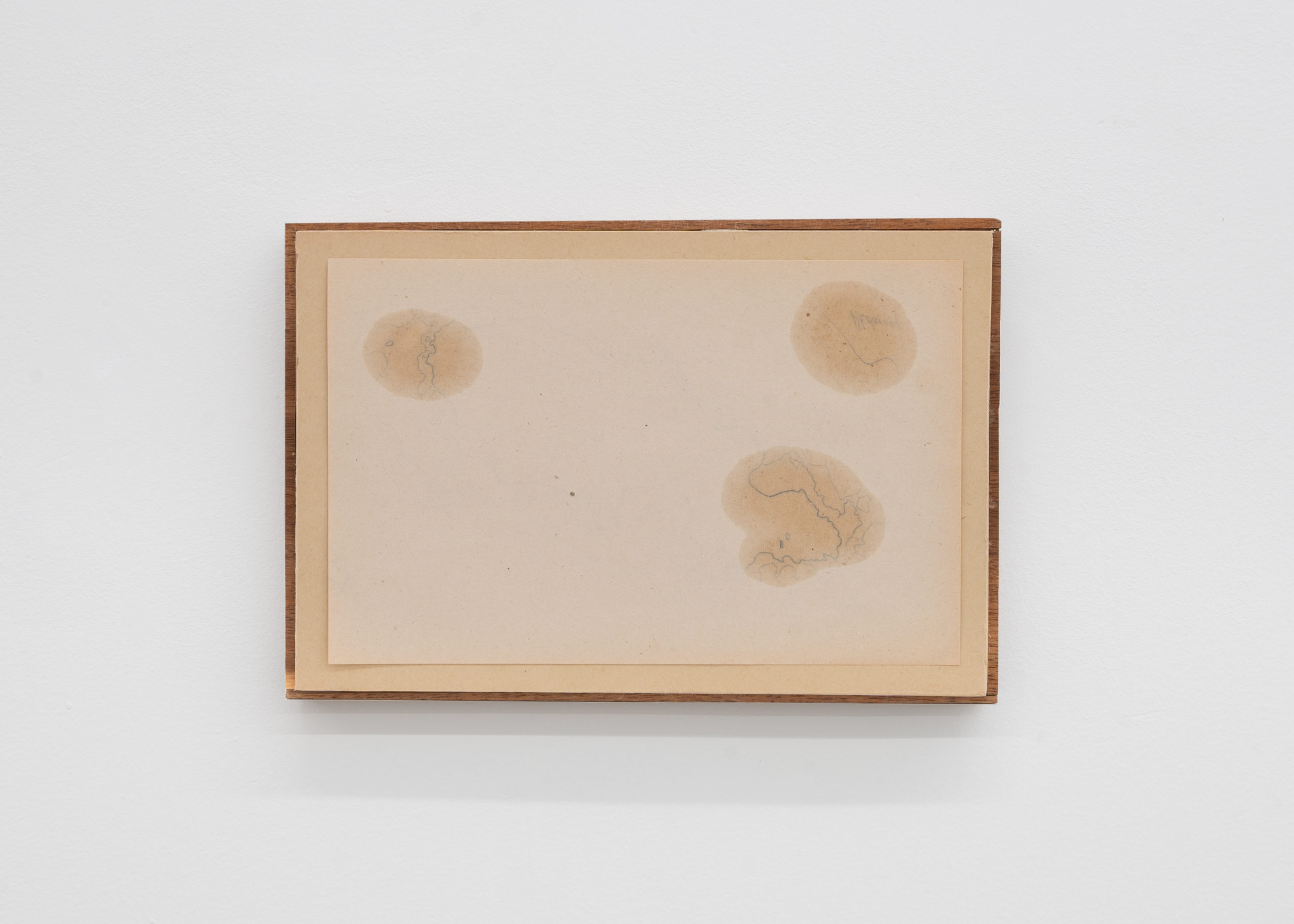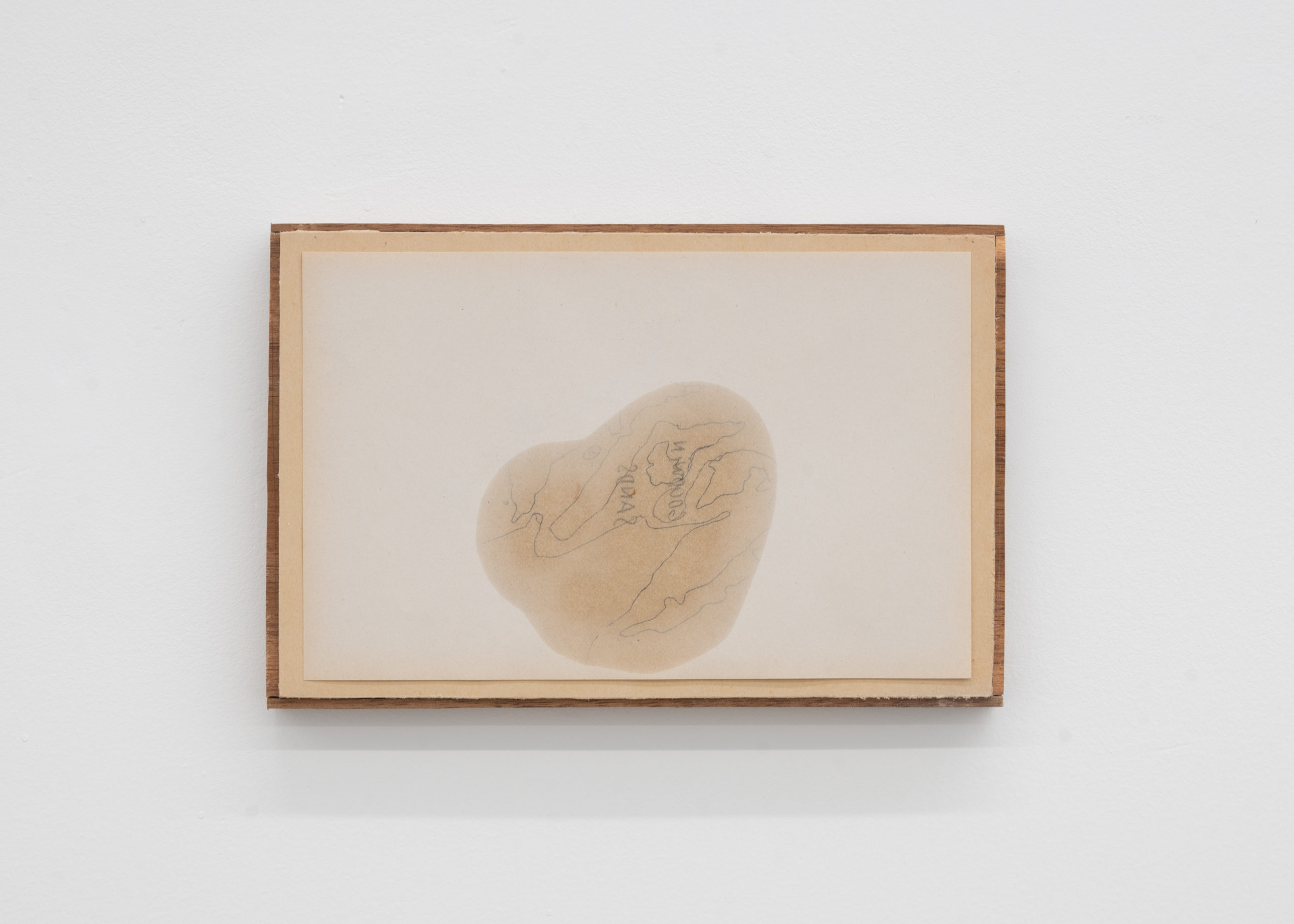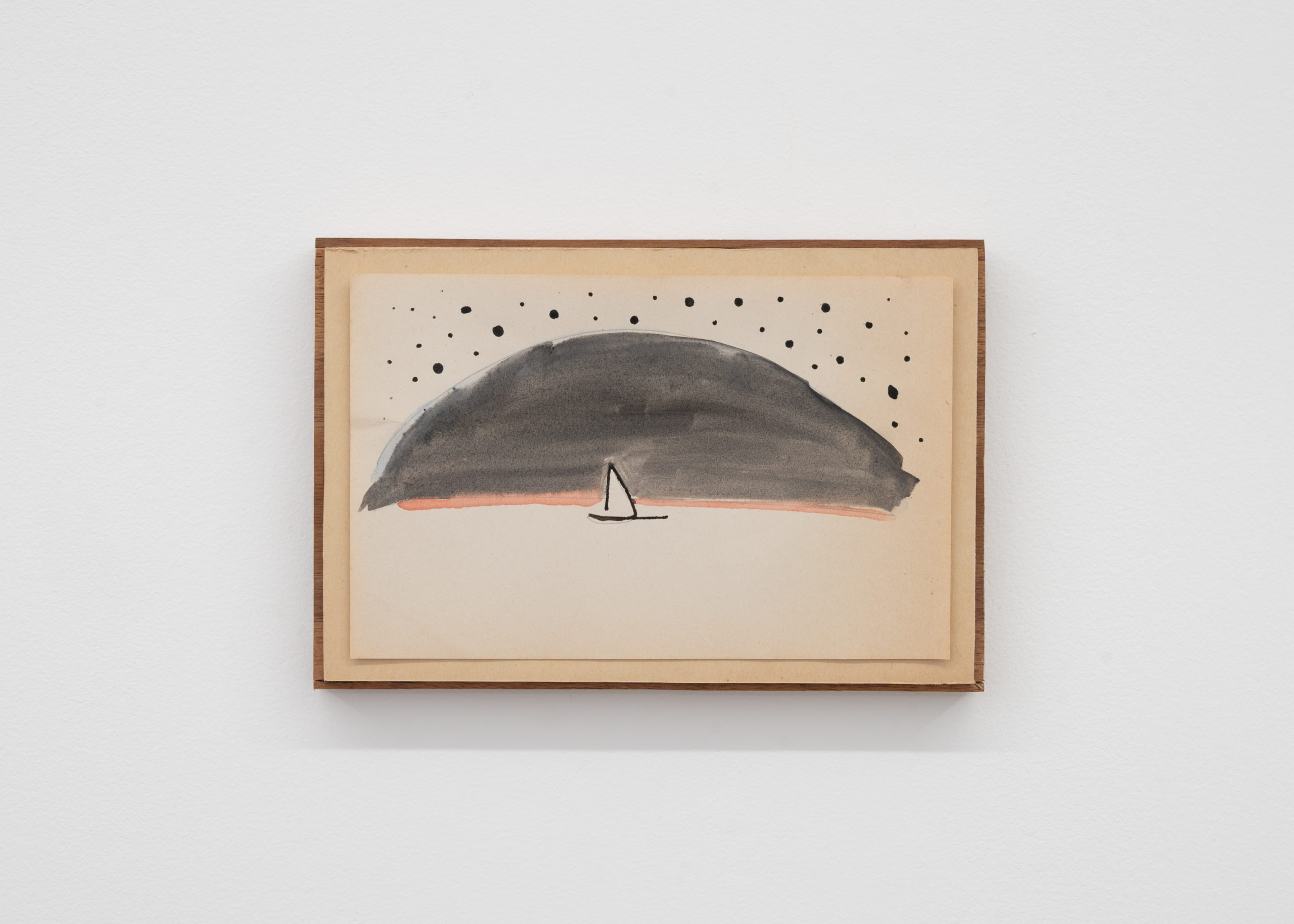
Alex Ayed
Alex Ayed was born in France in 1989. He works between Paris and Tunis, but is currently at sea on a multi-year voyage. He is a graduate of the École Nationale Supérieure des Beaux-Arts in Paris. Nominated for the third edition of the Reiffers Art Initiatives Prize, his work will be exhibited at the Acacias Art Center from April 26 to June 8, 2024.
Biography
Alex Ayed is a traveling artist whose journeys to an elsewhere that haunts him, whether in the desert or on the oceans, form an eulogy of slowness as a counterpoint to our hyper-connected, time-accelerated contemporary societies.
His works take the form of installations, paintings, drawings or assemblages of words and objects collected during his encounters and travels. In 2023, Alex Ayed embarked on a 14-meter-long boat that has become his studio at sea. This multi-year voyage will take him across the world's oceans and seas.
His work has been shown at the Fondation Louis Vuitton (2023), Balice Herting Gallery (2023), the New Museum Triennial (2021) and the Renaissance Society in Chicago (2021).
Texts
"Alex Ayed"
— Art Basel, 2023
Alex Ayed, born in 1989 in Strasbourg, is a Franco-Tunisian artist, trained at the École Nationale des Beaux-Arts in Paris, and active between the French capital and Tunis. His production is of a diverse technical nature (photography, sculpture, installation, performances) but mainly focuses on the collection of objects and the assimilation of concepts from his travels in the Mediterranean world and across Europe. From his findings, he makes assemblages that transform and transcend these apparently trivial elements into works of art.
The result is an artistic production that is both personal, because it is drawn from his travels and experiences, and universal; through these associations, it reflects humanity and questions the universe by whom and within which these objects were invented.
The result is an artistic production that is both personal, because it is drawn from his travels and experiences, and universal; through these associations, it reflects humanity and questions the universe by whom and within which these objects were invented.
